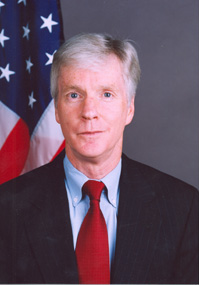Around 700 pages of documents detailing Iran’s influence of Iraq were leaked earlier this week, published simultaneously by the Intercept and The New York Times. The reports, written in 2014 and 2015 by Iranian officers based in Iraq, were sent by an anonymous leaker and have been verified by the media.
We discussed the trove of documents and what their release means with two experts at Princeton University’s Woodrow Wilson School of Public and International Affairs.

Amb. Ryan Crocker is a visiting lecturer and diplomat-in-residence. He has served as U.S. ambassador six times: Afghanistan (2011-2012), Iraq (2007-2009), Pakistan (2004-2007), Syria (1998-2001), Kuwait (1994-1997), and Lebanon (1990-1993).
Jacob N. Shapiro is professor of politics and international affairs and co-director of the Empirical Studies of Conflict Project. Shapiro studies political violence, economic and political development in conflict zones, security policy, and urban conflict.
Q. What is your reaction to the leaked Iranian cables — especially in this moment?
Crocker: There is little in the documents I have seen that is surprising. Since the establishment of the Islamic Republic in Iran in 1979, Iraq has been a huge factor in Iranian national security calculations. Saddam Hussein sought to strangle the new Islamic Republic in its crib, invading Iran in 1980. The bitter eight-year war that followed is largely forgotten in the West; however, it is indelibly etched in the consciousness of both countries.
We knew in the immediate aftermath of the 2003 invasion that Iran would assert its influence everywhere it could. Iraq’s first political entity established after the fall of Saddam, the Iraqi Governing Council, was negotiated by the United States with Iran via Iraqi interlocutors in the summer of 2003.

But influence and pressure do not necessarily translate into control. The legacy of the Iran-Iraq war is immense. Persians and Arabs have different histories and outlooks as well as different languages. The violent protests in Iraq have had Iranian targets.
The greatest defense against Iranian overreach in Iraq may be the Iraqis themselves. Iran can never achieve domination in Iraq. Its efforts to do so may push the Iraqis into firmer opposition.
Shapiro: I don’t know that the documents show much in the way of Iranian control. They provide evidence of effort. That’s different and quite important. For a number of reasons, particularly the historical legacy of the Iran-Iraq war, Iran’s ability to translate effort into influence was imperfect as best.
The most interesting element to me is the window these documents provide into Iranian intelligence operations in Iraq. It is easy to underestimate the challenges that Iran would have in running such operations. These documents appear to contain insights into why Iran’s influence campaign did not always run smoothly and how significantly its ability to operate was constrained during the main period of U.S. engagement.
Q. What are the implications for the Middle East as well as Iran’s relationship with the U.S.?
Crocker: Advice to the U.S. government? Treat Iraq and its government as sovereign. Do not demand a robust Iraqi counterpunch to the latest Iranian infringement. Be quiet, be reliable, and let the Iranians defeat themselves.
Shapiro: I think most of the fallout will be in Iraq politics. You are already seeing Iraqi politicians named in the cables denying that they worked with Iran. It’s too early to know how this release will impact the ongoing anti-government protests in Iraq, but my suspicion is that the cables will be used in the coming weeks to discredit the named politicians, including Prime Minister Abdul Mahdi who the leaked documents identify as having had a "special relationship” with Iran.
WWS Reacts is a news-focused series featuring faculty who present their views on current events.


